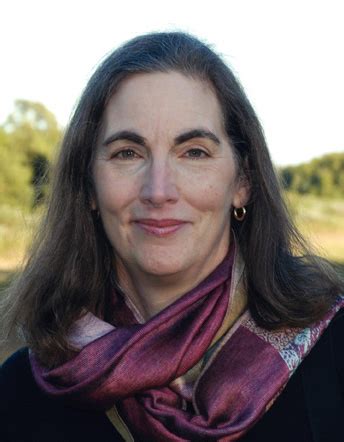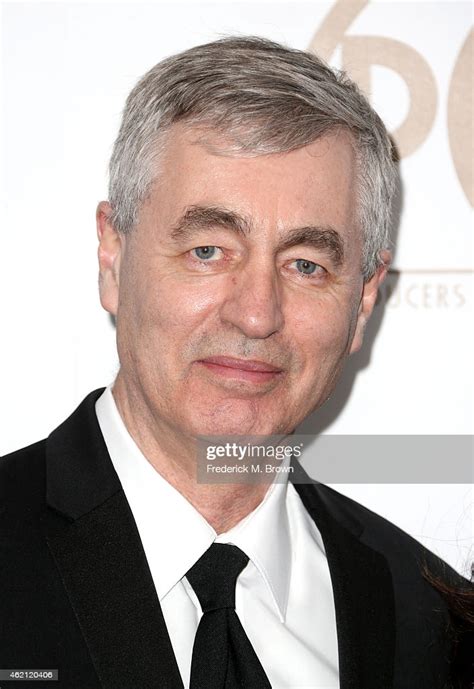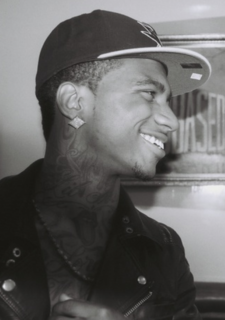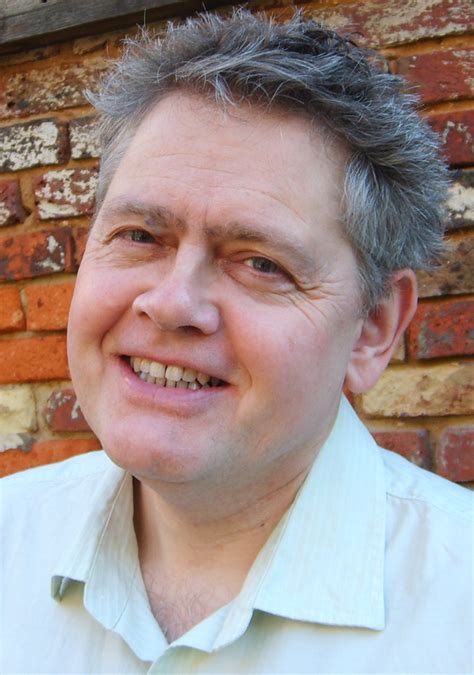A Quote by Gordon Quinn
None of our films look alike, we are very dialectical in our approach to each one, and 'Hoop Dreams' was no exception. That's what I love about documentary filmmaking, we never know where the story is going, we don't know what is going to happen next, and we're inside a culture of people that you have to figure out in many ways. It's a relationship between what you thought might have been the story, and what happens in the 'field.' Out of that comes the story, which was exactly what happened with 'Hoop Dreams.'
Quote Topics
About
Alike
Approach
Been
Between
Culture
Documentary
Documentary Film
Dreams
Each
Each One
Exactly
Exactly What
Exception
Field
Figure
Filmmaking
Films
Going
Happen
Happened
Happens
Hoop
Inside
Know
Look
Love
Many
Might
Might Have Been
Never
Next
No Exception
None
Our
Out
People
Relationship
Story
Thought
Very
Ways
Which
Related Quotes
That's what I love about documentary filmmaking, we never know where the story is going, we don't know what is going to happen next, and we're inside a culture of people that you have to figure out in many ways. It's a relationship between what you thought might have been the story, and what happens in the 'field.'
'Hoop Dreams' brought us back to our roots in veríté filmmaking. What we saw in the powerful emotional scenes within it - at nearly three hours long and with no star power - was an outreach to a different and more important audiences. There were the similarly involved folks who saw it that were part of the struggle, but there was also a new audience that weren't empathetic or sympathetic to the people we were portraying. They would never watch a film about inner city families, but they watched 'Hoop Dreams.'
In the thousands of stories I've collected over the years there are people who just want to know that their story matters, that their story isn't beyond hope. And people, no matter how broken a story I might read, I have always found at least a glimpse of God's hand still at work in each and every story. I have been powerfully reminded that God is in the junkyard business. He willingly walks into the messiest parts of our lives, gets his hands dirty, and begins building something beautiful out of that very thing which the world might overlook as worthless.
Each of us is our own story, but none of us is only our own story. The arc of my own personal story is inexplicably and intrinsically linked to the story of my parents and the story of my neighbor and the story of the kid that I met one time. All of us are linked in ways that we don't always see. We are never simply ourselves.
I think the beauty of documentary work is that it's a mystery - you never know where it's going to lead you. You start out with some notion of it, but it's very different from a script. A script you write, you shoot against, and you know what the story is going to be. There's always the element of surprise, but the surprise comes from performance, from something that's improvised, it comes from someone who sees it inside an already determined framework. In documentary, it's never determined. It's never the same, and affords enormous possibility.
For most of my films, I've had to go out and start shooting before I could get the rest of the funding. That was the case with 'Hoop Dreams,' 'Stevie' and 'The Interrupters:' We started them quietly out of Kartemquin Films, only really going to funders once we had something to show and a firm idea of what the film might be.
Literature is an aspect of story and story is all that exists to make sense of reality. War is a story. Now you begin to see how powerful story is because it informs our worldview and our every action, our every justification is a story. So how can story not be truly transformative? I've seen it happen in real ways, not in sentimental ways or in the jargon of New Age liberal ideology.
Usually, you get a script and you have the whole story. All the acts are there, for a play. You know what happens in the first, second and third acts, and you know how it starts, where you go and where it finishes. [With American Horror Story: Asylum], it's a whole new experience. I don't know where it's going, and I don't know what's going to happen next. It's been an interesting way to work. It's made me work in a much more fluid, braver way, just taking every chance that comes along.
I wouldn't have thought that the techniques of story-telling, which is what the novel is after all, can vary much because there are two things involved.There's a story and there's a listener, whose attention you have to keep. Now the only way in which you can keep a reader's attention to a story is in his wanting to know what is going to happen next. This puts a fairly close restriction on the method you must use.
I myself, as I'm writing, don't know who did it. The readers and I are on the same ground. When I start to write a story, I don't know the conclusion at all and I don't know what's going to happen next. If there is a murder case as the first thing, I don't know who the killer is. I write the book because I would like to find out. If I know who the killer is, there's no purpose to writing the story.
If we wish to know about a man, we ask 'what is his story--his real, inmost story?'--for each of us is a biography, a story. Each of us is a singular narrative, which is constructed, continually, unconsciously, by, through, and in us--through our perceptions, our feelings, our thoughts, our actions; and, not least, our discourse, our spoken narrations. Biologically, physiologically, we are not so different from each other; historically, as narratives--we are each of us unique.
Before I studied story, I was trying to write a novel, and it was terrible. It wasn't going anywhere, and I couldn't figure out what I was trying to do. It was really hard; much harder than I thought it was going to be. Now that I've studied story, I think I'd have a different approach and maybe I could actually get it done.



































